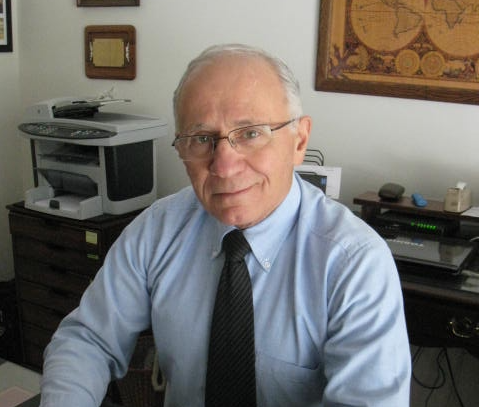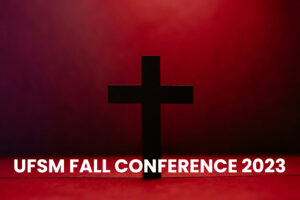“Now faith is the substance of things hoped for, the evidence of things not seen.” (KJV) Heb. 11.1
“Now faith is the assurance of what we hope for and the certainty of what we do not see.” (BSB)
We must begin our quest in understanding the ways of the Spirit by first clearly and comprehensively understanding the Godly principle of faith. In general terms, faith is most often associated with words like: trust, belief, confidence, and conviction. In the natural, these words may be an adequate substitute for faith. One may say, “I am of the Christian faith (conviction),” or “I believe (have faith) in Jesus, and the intent of those words is quite understandable. But, these words fall short in understanding the Biblical principle of faith, based upon its clear definition in Hebrews 11.1. Let us look more closely at this scripture beginning with the first half of the verse.
“Now faith is the substance (assurance) of things hoped for.”
Perhaps the best way to explain the Biblical meaning of hope is by first clarifying what hope is not, and then by describing what it actually is. Hope is not wanting or “wishing.” If one wishes, or has a strong desire for something that is not easily attained, they want something that may or may not happen. In other words, their wish for something is not based upon a promise or some guarantee but is only based upon an inward desire to obtain it. For example, one may wish for peace, or to end world hunger, or to win the million dollar lottery. Inwardly it is desired, realistically, it may never happen.
When I was very young and immature in the Lord and with much zeal, I desired to be a great evangelist, or even more, to be a miracle worker. I would even reason with the Lord that such demonstrations of His power through me would be an overwhelming testimony, and that many would come to be saved. However, this desire was founded upon wishing for something of which there was no actual promise, guarantee, or calling. It had no spiritual substance, only a self-desire. Christ’s great commission to the Church, “Therefore go and make disciples of all nations, baptizing them in the name of the Father, and of the Son, and of the Holy Spirit,” Mt. 28.19 is certainly Biblical, but in itself does not translate to a personal calling or ministry. Such a calling in one’s life is of the Lord and of the Spirit and is not of one’s personal aspirations.
I could have “forced” it by creating opportunities and using talents, but things never really came together along those lines. Instead, in my case, it seemed the Lord’s intentions for me were quite different. I was set on a long journey, for 40 years, to discover and make real Himself and His ways…to know Him. Now, in the twilight of my life, He has set me in a place and in a particular calling upon my life. I no longer wish for things in Christ, I now have hope, the expectation of things to come. I stand prone waiting expectantly as I sit to write, or to be sent into ministry afar, to counsel, and to teach. Though I still feel inadequate, I know this is my calling and ministry to the Body of Christ in which He has prepared and set me.
Hope is actually the “anticipation” or “expectation” of what is sure to come. It is not based upon fanciful wishing, but upon the substance of God’s promises and the fulfillment of His calling upon our lives. This is the way of the Spirit. For instance, I have hope (the full anticipation and expectation) for the parousia, which is a Greek term for His second coming, followed by the resurrection of the dead, my resurrection in particular. In addition, this resurrection does not mean eternal life, for that I already have in Christ. This resurrection means that my salvation will be complete as my body is transformed into the likeness of His own resurrected body. What is to follow that, in the age to come, is even more marvelous. I know that I know this both by the numerous scriptures that reference this parousia and resurrection and by the inward revelation or unveiling by the Spirit. Once standing and holding hands in a prayer circle, He spoke this promise to me, not in an audible voice but in “a still, small voice” within… Spirit to spirit. It is a spiritual fact upon which my hope lies. The only thing that separates me from its reality is time, however brief or long it may be. But, it will most certainly come!
And so hope, is actively and patiently waiting moment by moment, day by day, year by year, for God’s fulfillment of His word, His promises, and His calling. But surely, in the end, “… all the promises of God are “Yes” in Christ. And so through Him, our “Amen” is spoken to the glory of God.” 2 Cor. 1.20 Thus hope is that part of faith that says Amen, or “so be it,” to these promises that, by His own eternal law, are a guaranteed “yes!” Many of these promises point back to the physical setting of the OT which are types and shadows of its present day spiritual reality in Christ. Today, they are acted upon by faith to bring about a spiritual reality in the life of the believer that begins now and continues into the marvelous age to come.
“Now faith is… the evidence (certainty) of things not seen.”

Now, let us move on to the second half of Hebrews 11.1. In the natural we are living in an age that is very fleshly, or carnal. Mankind is very self-centered, materialistic, and living in the now with little patience of things to come. Man tends to be need-oriented with a quest to satisfy those fleshly demands, and the sooner the better. He became this way through the fall of Adam in which something most valuable was lost, a living relationship with God, which is spiritual. Adam, in all essence, became spiritually dead toward God. And now, all mankind, being of the seed of Adam, is also spiritually dead toward God but even more alive and attuned to ‘self’. Emotions are now piqued primarily through the physical senses. Sometimes it may be fanciful thoughts that bring these heightened pleasurable moments, but even these thoughts are based upon things we have seen, felt, tasted, heard, or smelled in the past. From birth, the physical has dominated our lives. Some have also dabbled in the spirit realm of invisible beings and powers, into which they should not have ventured. However, for the believer, a new realm has opened to him known as the Kingdom of God, a domain that is outside the physical. It is beyond the reasoning intellect, the senses and emotions. It is the realm of the Spirit and faith.
See illustration. The believer is in the world with all the surrounding natural environment. However, he is not of the world now because he is also, in Christ, and has been translated into the Kingdom of God. He now encounters two opposing environments: one of the spirit, and one of the flesh.
“Seeing” Things Differently.
We must now entertain a most critical thought or understanding of spirit and faith: and that thought is being fully convinced of things not seen… not only of doctrine or particular teachings, but spiritual “things,”—that which makes up the substance of the Kingdom of God.
The unseen elements of the Kingdom that are all about us cannot be perceived by any faculty of the natural man, they must be perceived by faith… which is the evidence of things not seen and anticipation of things hoped for.
While walking this earth in the flesh, Jesus was yet the Son of God. “In Him dwelt all the fullness of the Godhead bodily.” Col. 2.9 Yet while standing before Pilate discussing the matter of the Kingdom of God, Pilate’s “natural” eyes were blind to this fact and Jesus just appeared as any other man in the flesh. (John 18.33-38) But when Jesus asked His disciples, “Who do you say that I am?” God, the Father, opened Peter’s “spiritual” eyes to see the greatest most marvelous revelation and reality of the Kingdom. Peter responded, “You are the Christ, the Son of the living God.” Mt. 16.16 Peter saw in the spirit the invisible reality of the Kingdom of God. Without such revelation, Jesus would only have appeared as a wise teacher or a prophet. But to see Him as “the Christ, the Son of the living God” is solely of the spiritual domain. It is the evidence of things not seen.
“So we fix our eyes not on what is seen, but on what is unseen. For what is seen is temporary, but what is unseen is eternal.” 2 Cor. 4.8
When the Pharisees pressed Jesus about the coming Kingdom of God, He replied, “The kingdom of God will not come with observable signs. Nor will people say, ‘Look, here it is,’ or ‘There it is.’ For you see, the kingdom of God is in your midst.” Lk. 17.20-21 The Kingdom is not observable in the natural. The phrase “in your midst” actually speaks of the “inward parts,” or spiritual nature of man, as contrasted with the outward. Man must seek the Kingdom of God in a different realm altogether. And that realm is a life into which one must be “born again.” It is as Jesus replied to Nicodemus, “Truly, truly, I tell you, no one can see the Kingdom of God unless he is born again.”Jn. 3.3
Copies, Types, and Shadows are Inadequate
This necessity of perceiving the unseen by our spiritual senses, and not our natural senses, cannot be over emphasized. I was raised in a religious situation that attempted to convince me that this “church,” and all the activities within it, was a holy place having the very presence of God and was there to serve His purposes. And they did this by appealing to my intellect and by addressing every physical sense and emotion in me. With my eyes I saw the stained glass windows, the priestly vestments, the altar, etc. With my ears I heard the (organ) music, the choir, and the priestly chants. I could smell the fragrance of the incense and the burning candles. I could dip my fingers into the “holy water” and touch the crucifix by kissing the feet of the crucified Christ, and I could taste of the elements of communion. And, this was all set into a most solemn setting reinforced by disciplined folding hands in prayers, bowing, kneeling, and genuflecting and by the hundreds of people around me all responding in unison. This sparked a unique emotion within me that I interpreted, in the natural, as something “holy” and reverent. I was convinced of it.
I actually “felt” something in this environment, as these settings are so designed to do. They are, to some degree in the natural, what can only simulate or be a shadow of spiritual reality. They can never be a substitute for spiritual reality but can only be a pseudo environment for it. My shadow is not me, but only an image of me. It is real but not of my reality. I exist even in a darkened room where there is no shadow. Religion, such as described, is but a shadow of spiritual reality. Somehow I felt that that which was outside of me was somewhat holy, but it was not so within me. Nor was the moral environment about me necessarily “holy,” for I knew many of the “congregation” and even some of the priesthood or clergy were practicing adulterers, sexual perversions, alcoholics, liars, etc. I, like the others, were gathered there to pay homage to this great and mysterious God, wanting that He would overlook my (our) sinful behavior and that He would somehow bless me now and in eternity to come—if I just followed the precepts of that religion.
But true faith is not based upon “feelings,” and “wishes” or convincing arguments which can be misleading and completely deceptive. Feelings and indoctrination are never a substitute for spiritual reality. A “religious” experience can be achieved without the actual presence of God in the Spirit…that is, alone it cannot connect the believer into union and fellowship with the living God. At best, it can only connect someone with what appears to be a meaningful system of worship and with others functioning within that system. Religious activities are deceptive and fall miserably short of experiencing spiritual life.
Religious activities are deceptive and fall miserably short of experiencing spiritual life.
In television, movies and video games “special effects” are used to create illusions or visual tricks to simulate events in a story. Images are created and sounds are generated so one may “think” they are actually real. But, they are not real, they are deceptions. The special effects are to the natural world what religious activities are to the spiritual. They are but shadows or copies of reality, the former of the natural world, the latter of the spiritual. In neither instance is one witnessing or participating in the respective reality, but only its shadow.
A church life such as this will “manage” its people. It controls their outward behavior and their tithes and offerings. In such an environment there is a sense of holiness, of devotion, and of conviction to return again and again, and to follow the mandates of the church…of which I was convinced was equal to the mandates of God upon my life. In all of this, something indeed was lacking. Today, in looking back upon my life, I know now that something was spiritual life, that which connects me with the living God and transforms my being from the inside out. In short, Jesus said, “I have come that they may have life, and have it in all its fullness.” Jn. 10.10 Life and religion are not equal nor evenly faintly comparable to one another. This thought will be dealt with in more detail in a subsequent chapter in this series.
A Taste of Spiritual Reality
All of this outward: visible, audible, tangible, emotional, and logical aspects of the natural realm are unnecessary to the spiritual man who looks into the unseen realm of the Spirit. For example, today, as I gather with others in prayer and worship, I am thoroughly convinced of Jesus’ words, “For where two or three are gathered together in my name, there am I in the midst of them.” Mt. 18.20 I fully anticipate His presence and perceive of it with the eye of my spirit. Oh, how many confess or recite this very verse yet go on to conduct themselves in a manner of not being convinced of it. This spiritual fact is true whether the individual is in a great cathedral among a throng of worshippers, or a gathering of a handful of believers in the midst of a pasture.
I am first to confess that too many times my attitude, behavior, even with daydreaming and scattered thoughts, all denied my belief in this fact. But my behavior did not make this fact of the abiding Christ any less true, it just negates my opportunity of spiritual fellowship with God. I may have said all the right words in prayer response, sang the hymns and songs, stood and sat when I should have, gave my offering, and by all appearances participated in a “holy” service. But, I am afraid my faith and heart fell short, and I was as the one of which Jesus spoke, “These people honor Me with their lips, but their hearts are far from Me.”Mt. 15.8
Whether gathering in a “church” building, a living room, or a tent, His promise is true, “…I am in the midst of you.” Whether the gathering together is declared to be a worship service or not is immaterial. If Christ is the focus of the gathering, He is in the midst. Today, I see Him with the eye of my spirit, and I listen with my spiritual ears. This is seeing and reacting by faith the invisible and intangible spiritual reality of the Kingdom. All those other “things” or activities of the natural may help in some way to reinforce the spiritual, however, with each degree of enticement by the natural elements (e.g., pictures, icons, fragrances, flashes of light, smoke, motivational sermons, stirring songs, gleeful music, etc.) there is an equal diminishing degree of spiritual reality. The outward always smothers the inward.
“Therefore, since you have been raised with Christ, strive for the things above, where Christ is seated at the right hand of God. Set your minds on things above, not on earthly things. For you died, and your life is now hidden with Christ in God.” Col. 3.1-3
This scripture, and others like it, cannot remain as just nice sounding words to be memorized and recited. They must be applied by faith in our attitudes of worship, in prayer, and everyday life. It is a spiritual walk before God. So, hope is the expectation of entering the reality of the heavenly setting today and in the age to come, and seeing is perceiving with the eye of the spirit what cannot be seen with the natural eye.
The Spirit and Emotions
If our emotions become involved, let it be a result of entering into spiritual communion with God our Father and Jesus Christ, and not because of emotions piqued by a motivational preacher, the physical setting, or hyper music. All of these can touch the outward man but will leave the inner man of the spirit in lack. Emotions piqued by spiritual awareness are deep within the inner man. Isaiah felt a deep inward conviction as he spoke, “Woe is me for I am undone.” Is. 6.5 Job said, “I have heard by the hearing of the ear, but now my eye sees You, therefore I abhor myself and repent in dust and ashes.” Job 42.5,6 Spiritual emotions are as the two disciples who encountered the resurrected Christ at Emmaus and said, “Were not our hearts burning within us as He spoke with us…” Lk. 24.32 In quoting a Psalm, Peter spoke, “You will make me full of joy in Your presence.” Acts 2.28 This joy is real, it is abiding.
These and many other scriptures describe deep emotions stirred by spiritually encountering God. Our thoughts become focused, our hearts become soft and malleable, our attitudes meek and humble, and, as the song goes, “Things of the earth grow strangely dim in the light of His glory and grace.” Of utmost importance is that these emotions are of spiritual origin and substance and therefore remain a part of our lives, not to flee away with circumstances of the next hour or day.
Remembering Abraham
May we receive Abraham as an example and bulwark of our faith in the invisible and intangible elements of the Kingdom of God. Though he journeyed this earth pressing towards a physical land of promise, there was yet a deeper yearning to his soul. There was something of the spirit he sought, for it is written, “For he was looking forward to the city with foundations, whose architect and builder is God.” Heb. 11.10
Man is so futile in his own efforts to achieve anything of spiritual value. He uses all his knowledge, all his skills, and resources, which is completely contrary to the way of the Spirit. Not long after the great flood, man gathered together at Babel and said, “Come,” they said, “let us build for ourselves a city with a tower that reaches to the heavens, that we may make a name for ourselves and not be scattered over the face of all the earth.” Gn. 11.4 And the Lord God came and scattered them and they stopped building the city. In time, Jerusalem grew to be a great city, only to be destroyed time and time again.
Greatness with man is a fleeting thing, for it has no enduring spiritual value. But there is a city, a heavenly city, the Jerusalem which is above, that endures forever—“whose architect and builder is God.” Our efforts, our resources and strength must not be in the building up of the natural, the physical, but in fully establishing the spiritual. I hear so often among pastors that the building of the Kingdom is gained in numbers of people and new churches established. This is but from a human view, not God’s. His Kingdom is to be built, His city filled, His people gathered, but in ways in which He is the architect and builder. Indeed the Hebrews declaration is before us, “Instead, you have come to Mount Zion, to the city of the living God, the heavenly Jerusalem. Heb. 12.22 And God is spirit, and His ways are spiritual. Shall we believe with Abraham?
“So we fix our eyes not on what is seen, but on what is unseen. For what is seen is temporary, but what is unseen is eternal.” 2 Cor. 4.18





